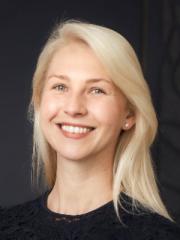
Dr Nienke Zomerdijk is an Early Career Research Fellow in the First Nations Cancer and Wellbeing Research team at the University of Queensland (2023-present), with expertise in the psychosocial aspects of haematological malignancies and stem cell transplantation.
Prior to this, she was the inaugural Research Fellow in Psycho-Oncology jointly appointed between the Melbourne School of Psychological Sciences and the Victorian Comprehensive Cancer Centre Alliance (2019-2023). Nienke earned her doctorate from the University of Queensland Faculty of Medicine in 2019, carried out within the haematology departments of the Royal Brisbane & Women's Hospital and Westmead Hospital in Sydney.
Nienke’s research program has a core focus on providing optimal care for haematology patients and individuals undergoing high-intensity treatments such as stem cell transplantation. Her diverse research portfolio in haematology spans various topics, including investigating the psychological impacts of COVID-19 on haematology patients and their healthcare professionals, exploring the psychological aspects of family stem cell donation, and examining the burden of haematological malignancies specifically in First Nations Australians.
She has a strong record of collaborations with key community organisations, such as the Leukaemia Foundation, and has served as a member of the National Blood Cancer Optimal Care Pathways Working Group for two haematological cancer subtypes. Nienke is a member of the Psycho-Oncology Cooperative Research Group (PoCoG) Scientific Advisory Committee and Co-Chair of the PoCoG Early Career Special Interest Group.
As a whole, Nienke's contributions to the psycho-oncology field have received growing recognition, including numerous awards such as the International Psycho-Oncology Society Congress Award in 2021 and the Margot Prior Early Career Research Award in Clinical Science in 2022. She has published a book chapter and over 20 peer-reviewed publications, including systematic reviews. She has attracted over $1 million in grants funded by Cancer Australia, the Leukaemia Foundation, the University of Melbourne, the University of Queensland, and the Royal Brisbane & Women’s Hospital Foundation as a CI.
